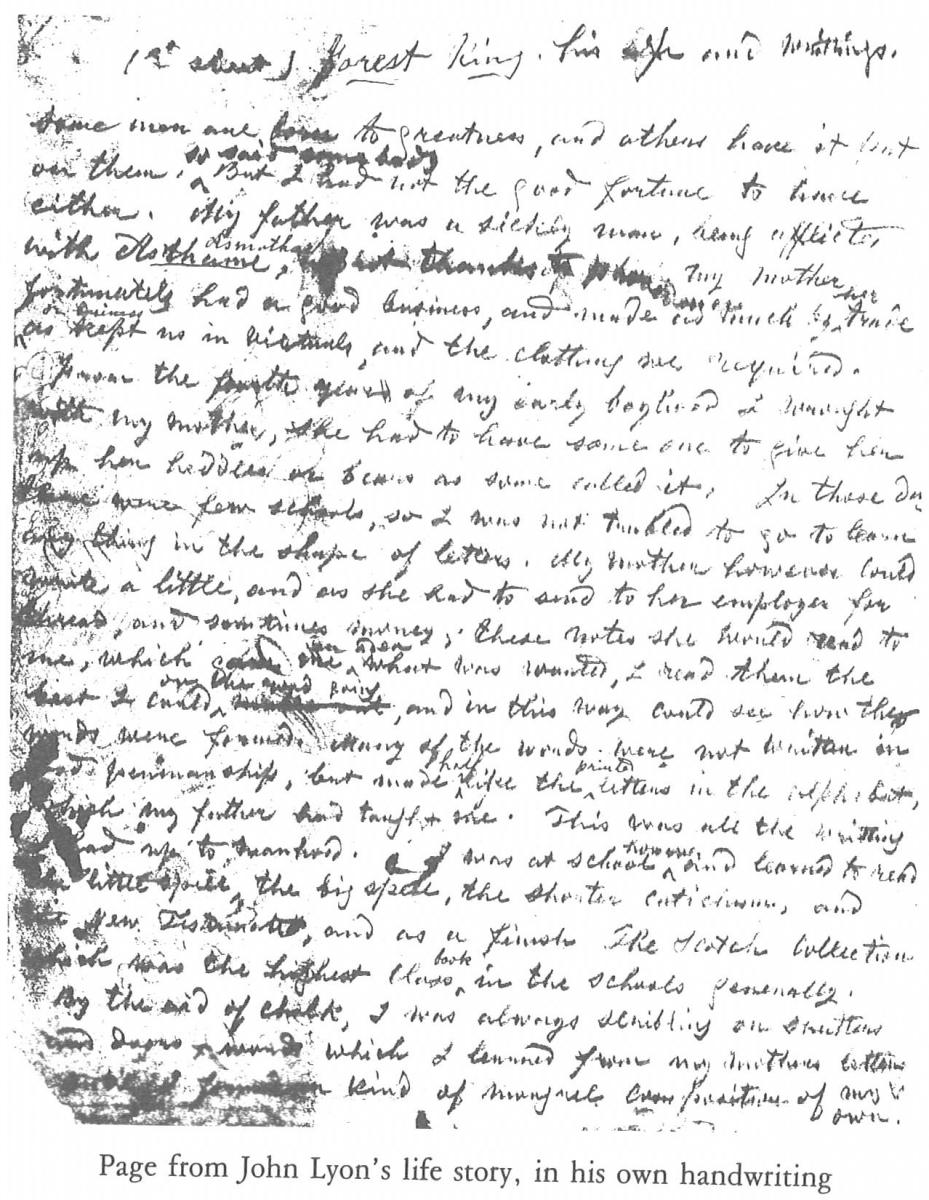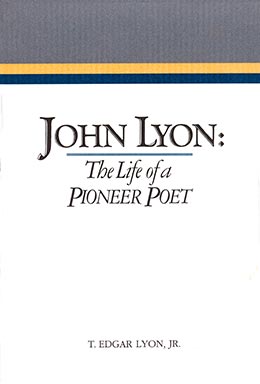Preface
T. Edgar Lyon Jr., John Lyon: The Life of a Pioneer Poet (Provo, UT: Religious Studies Center, Brigham Young University, 1989), x–xiii.
The religious history of the Latter-day Saints, whether written by apologists, detractors, or professional annalists, is well known and documented. The economic history of the same group, particularly while in the Great Basin (of Western America), has also been well studied. Political involvement and developments of The Church of Jesus Christ of Latter-day Saints through 150 years have been frequently examined. Unique social institutions (polygamy, the “ward” family, rural village lifestyles in Utah, etc.) have received and continue to enjoy frequent intellectual inquiry. The history of the Mormons is probably better told than that of any other minority in the United States. Much less is known, however, of the intellectual, aesthetic, artistic, and literary history of the Mormons. The present volume, a biography and analysis of the life and writings of John Lyon, is an attempt to partially fill this lacuna.
“It is rare that Death lays his hand upon one who, without special official position in the Church, was so widely known personally or by reputation as Father John Lyon” (Millennial Star 1889, 813). At Lyon’s death in 1889 his name, face, poetry, and hymns were well known by most Latter-day Saints. He functioned in a governmental appointment for sixteen years (as Utah territorial librarian); served as superintendent (president) of Salt Lake City’s sacred Endowment House for thirty years; and labored as theatre, art, and poetry critic for the Deseret News, the Peep O’Day, and other Salt Lake City newspapers for more than a score of years. Nineteenth-century Latter-day Saints hailed him as the first Mormon to author a complete book of poetry; seven of his sacred poems graced the pages of early LDS hymnals. Early LDS poets and hymn writers accorded him highest honors for his poetry and personal leadership. In 1847 the Millennial Star published the first short story ever to appear in a Mormon journal; it likely came from John Lyon’s pen. During the 1860s he wrote and published a loosely-held-together novel which appeared as serialized memoirs in the Deseret News. This, too, was another first, in an era of official condemnation of fiction writing. He was the first critic of the Deseret Dramatic Association and for twenty years wrote theatre criticism, reviewing productions in the Salt Lake Theatre. Brigham Young counted him a personal friend.
Yet despite these worldly honors, John Lyon was a rather common man, one who struggled with insufficient finances, suffered great family disaster after becoming a Mormon, anguished over respected friends who left the LDS church, and at times resisted the developing doctrines of his new faith. The present volume details the life of John Lyon and his family. It is not a hagiography-Lyon’s life as a saint even before he knew of the Latter-day Saints-but an analysis of the social milieu in which he existed. I have placed considerable emphasis on his early years in Glasgow and Kilmarnock, Scotland, because those pre-Mormon years formed what he eventually did and became in Utah. Less background information on his Utah years (1853–89) is included because the political and religious history of Utah is more easily available and better known to students of Western American history.
As one who had almost no early formal education and who did not learn to read and write until in his mid-twenties, Lyon achieved a goal he frequently admired in others, that of being largely a “self-made man.” For most of his eighty-six years he devoted his self-discovered talents and energies to improving the lot of those less fortunate than he. After joining the LDS church (1844) he was regarded as a “Lion for the Lord.” A non-LDS friend in Scotland praised his “rampant nobility.” LDS President John Taylor hailed him:
Thou Lyon of the East! I’ve heard thy roar;
Thy voice hath sounded Britain’s Isles all o’er;
And in Columbia’s land a Lyon’s known,
Not by another’s works, but by his own.
(Harp of Zion 3)
Many in nineteenth-century Mormondom knew him well; in the twentieth century his life and works have slipped into dusty catalogs and dark anonymity. This study seeks to give new life to pioneer poet John Lyon.
Many individuals and organizations have assisted in the preparation and production of this book; I thank them individually but accept full accountability for any errors we could not eliminate.
Mr. Joe Fisher, director of the Glasgow room at the Mitchell Library (Glasgow, Scotland), lent valuable assistance in finding materials relating to John Lyon’s early years. Albert and Aileen Roy (Bishopbriggs, Scotland) read the first chapters and offered excellent cultural advice. John McLeish, East Kilbride (Scotland) Local History Librarian, and Joe Allen of the East Kilbride History Society read the first chapter and provided numerous documents and insights relating to Lyon family life in that area. Mr. Dib Bett from the Dick (Historical) Institute in Kilmarnock (Scotland) read part of the manuscript; several other researchers from the Dick Institute offered assistance and source information. Frederick S. Buchanan (University of Utah) graciously read the chapters dealing with Scotland and supplied me with many previously unseen documents. Librarians in the Collindale (England) Periodical Library searched out copies of the Scottish newpapers on which Lyon worked.
Maureen U. Beecher, Ronald Dennis, Malcolm Thorp, and David Whittaker from Brigham Young University (Provo, Utah) have read selected chapters and provided valuable insights.
Ronald Barney, Linda Haslam, and James Kimball (Library-Archives of the Historical Division of The Church of Jesus Christ of Latter-day Saints, Salt Lake City, Utah) have freely given hours of their time to dig out difficult-to-find documents.
Valerie Oakey and Melanie Rasmussen from Brigham Young University have patiently searched out details and data for this study. Stirling Adams, Valerie Holladay, Terry Jeffress, Daniel Muhlestein, Karma Wasden, and Linda Hunter Adams of the Brigham Young University College of Humanities Publications Center willingly read, edited, and typeset the final manuscript.
My children have tolerated me; my wife has inspired me.
Thank you, all.

